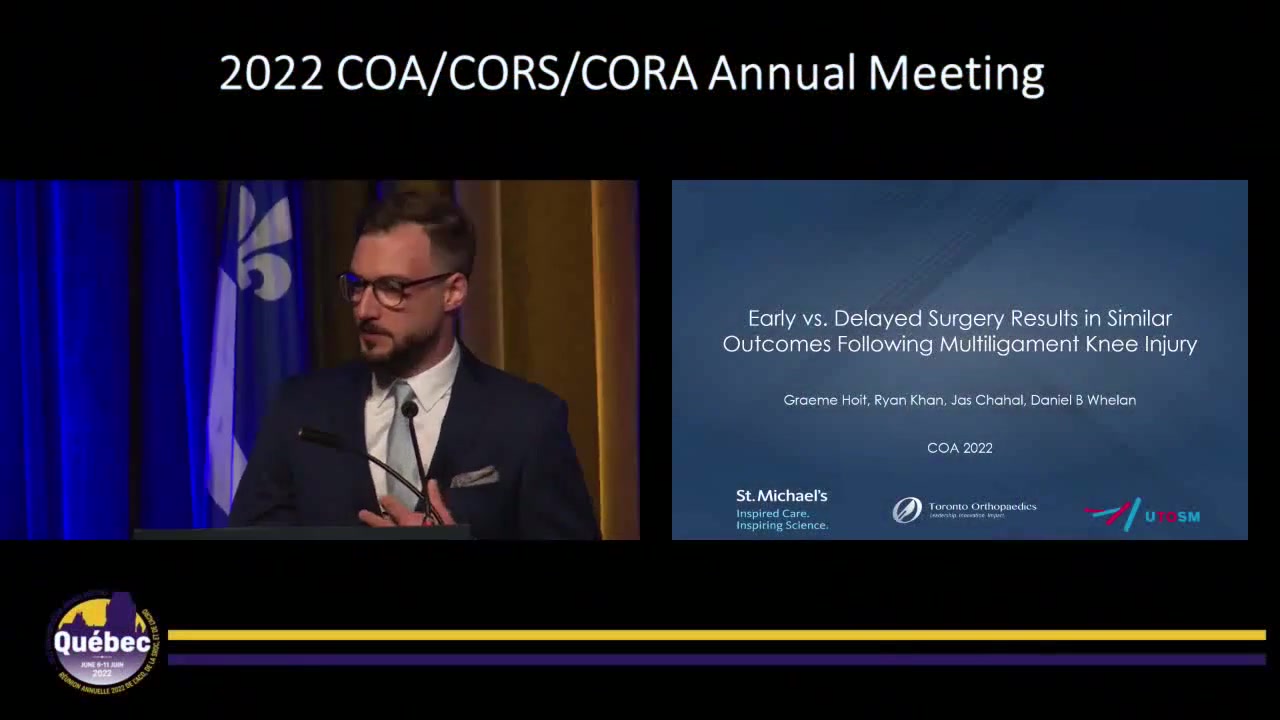Please login to view this media

- Talk
- 10/06/2022
- CANADA
Early vs Delayed Surgery Results in Similar Outcomes Following Multi-Ligament Knee Injury
Description
In a presentation by Dr. Graeme Hoit, he discusses a significant study on multiligament knee injuries resulting from dislocations, which are uncommon but can lead to severe long-term disability. He acknowledges the efforts of the Canadian Orthopaedic Association and his co-authors, emphasizing the lack of extensive evidence on treatment timing due to the rarity of these injuries. The study aims to compare outcomes of early surgical intervention (within six weeks) versus delayed surgery (12 weeks to two years post-injury) using a retrospective analysis of data collected at St. Michael's Hospital since 2006.
Dr. Hoit outlines the methodology, including the creation of a prospective database that documents patient demographics, injury specifics, surgical details, and follow-up results. A cohort of 131 patients was identified for the study, primarily male, with a mean age of 35 and a follow-up period averaging 58 months. The primary outcome measure was the multiligament quality of life questionnaire evaluating the impacts of the surgery on physical, emotional, and social functioning.
He shares that while primary outcome results did not show significant differences in patient-reported outcomes between early and delayed surgery, patients receiving early surgery were more likely to require manipulation under anesthesia afterward, suggesting a risk of arthrofibrosis. The presentation highlights the importance of counseling patients about these risks when considering early surgery.
Hoit acknowledges study limitations, such as its retrospective nature and potential confounding variables in patient selection, and calls for future randomized controlled trials to address these issues. The talk concludes with a takeaway message emphasizing that current practices should consider patient-specific factors when discussing surgical timing.